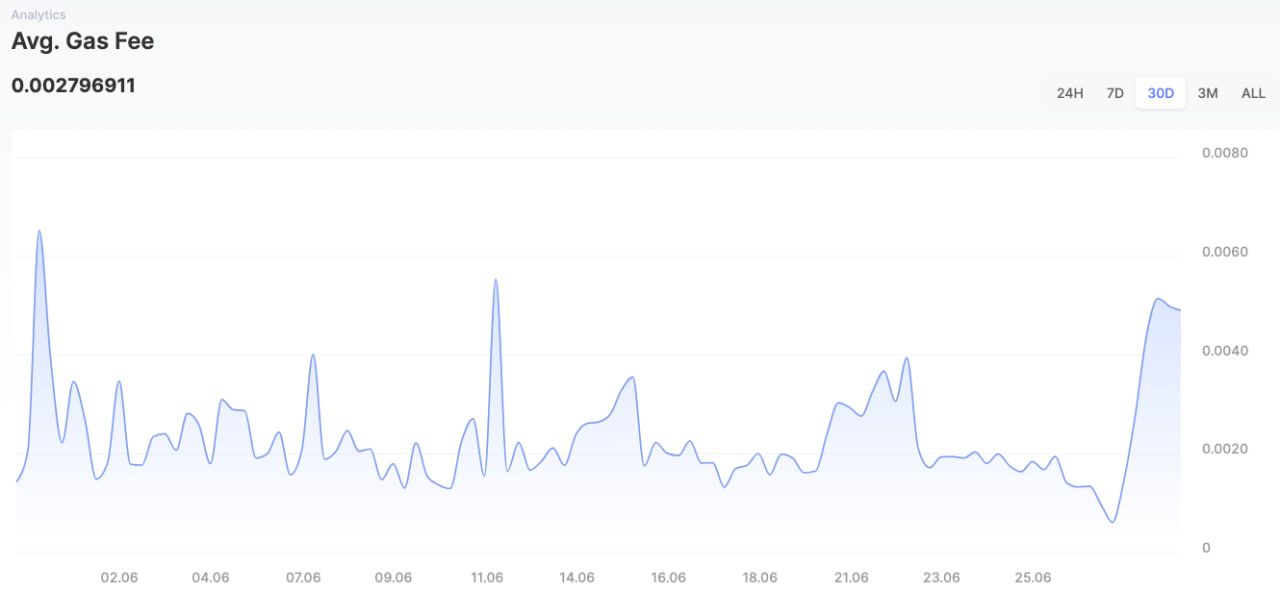Understanding Gas Fees in the Sui Network

Sui's gas fee system balances between supporting the network's infrastructure and making it easy for users to participate, fostering a robust and inclusive network.
Gas fees play a crucial role in maintaining a healthy network for apps on Sui, whether they're for entertainment or utility purposes. These fees are the costs users pay for their transactions on the blockchain. They help compensate the individuals who operate the servers that keep the network running smoothly.
On Sui, users pay gas fees to perform various actions on the network. It could be something as straightforward as transferring ownership of a digital collectible or engaging in a complex role-playing game. Gas fees on Sui are paid using the SUI token. However, in practical terms, each fee is just a fraction of a SUI, referred to as MIST, which is a billionth part of a SUI.
Consistency is essential for gas fees to ensure a good user experience. Imagine having to pay 500 MIST for a transaction one minute and then 10 SUI for the same action the next. To tackle this issue, Sui has implemented a tokenomics model that combines mathematical computation with classic economic competition.
Calculating Fees
Sui operates as a decentralized and permissionless network, allowing anyone to become a Validator and contribute to the infrastructure. Validators have the responsibility of processing transactions promptly. Since running Validator hardware can be costly, gas fees help cover the infrastructure expenses.
In Sui's model, each Validator submits the minimum price at which they are willing to process transactions during each epoch. An epoch is a time period during which the network operates, usually lasting up to 83 epochs. Sui automatically organizes the submissions and selects the reference price at the 2/3 percentile based on stake. This price ensures that the majority of Validators will process transactions efficiently, thereby maintaining a healthy network and positive user experience.
It's important to note that the reference price is not the same as the gas fee. Instead, it serves as a significant component of the total fee. Each fee is calculated by multiplying the computation units required for a transaction by the reference price and adding a separate amount to cover on-chain storage costs.
Essentially, each Validator on Sui competes to process transactions because they earn SUI through these transactions. The pricing mechanism keeps the fees at a reasonable level. For example, the average gas fee on Sui over a recent 30-day period was approximately 0.002797 SUI, which is equivalent to 2,797,000 MIST.

User Payments
The process of calculating gas fees might seem complicated, but from a user's perspective, the most important factors are keeping fees low and predictable. When a user wants to try out an app on Sui or trade a digital collectible, their wallet will prompt them to approve the gas fee payment. This fee will be based on the current epoch's price and should not vary significantly from previous epochs.
Sui provides builders with the option to collect gas fees in different ways, which can impact the user experience. Instead of users paying the fee directly, builders can choose sponsored transactions where they cover the fee using their own funds. This approach offers a seamless experience for users, as they can use the builder's app without the hassle of approving a new wallet transaction.
With the sponsored transaction model, builders will likely need alternative revenue streams. This can include in-app advertisements that generate income to cover the transactions. Alternatively, builders may offer add-ons for a fee or a premium version of the app that requires a subscription. In all these cases, the builder assumes the responsibility of paying the gas fees, providing users with a transparent experience.
Flexible Fee Models
When it comes to gas fees, Sui understands the different approaches taken by traditional Web2-based apps and blockchain apps. While Web2 apps typically do not charge users directly for infrastructure fees, blockchain apps often leave it entirely up to users to cover these costs.
Sui stands out by providing a range of payment options to accommodate both models. Builders on the platform can choose to leave the responsibility of gas fee payment entirely up to users. This approach aligns with the traditional Web2 model where users directly bear the costs associated with infrastructure.
Alternatively, builders can explore alternative revenue models to cover gas fees, such as integrating advertising or subscription-based services. By adopting these models, they can provide users with consistent gas prices from epoch to epoch, ensuring a seamless and transparent experience.
Users, on the other hand, can choose to support particularly engaging apps through subscriptions, enjoying uninterrupted access to premium features or content. Additionally, they can also opt for entirely free apps that are supported by advertisements. These flexible fee models empower users to select the payment approach that best suits their preferences and needs.
Sui's commitment to providing payment flexibility not only benefits users but also promotes a vibrant ecosystem where builders can monetize their apps effectively while delivering value to their user base.
Wrapping up
In conclusion, gas fees play a critical role in the functioning of Sui's network, serving as a mechanism to support the underlying infrastructure and enable the seamless operation of diverse applications. Sui's commitment to maintaining consistent and user-friendly fee structures ensures a positive user experience.
By offering flexibility in fee collection methods, Sui empowers builders to tailor their revenue models to best suit their app's nature and target audience. Whether it's allowing users to directly cover gas fees or exploring alternative avenues such as advertising or subscription-based approaches, Sui enables builders to strike a balance between sustainability and user accessibility.
Be sure to check out Suipiens' website and social media channels to stay up-to-date on all things about Sui Blockchain!

